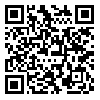Volume 8, Issue 5 (Special Issues 2023)
IJREE 2023, 8(5): 15-28 |
Back to browse issues page
Download citation:
BibTeX | RIS | EndNote | Medlars | ProCite | Reference Manager | RefWorks
Send citation to:



BibTeX | RIS | EndNote | Medlars | ProCite | Reference Manager | RefWorks
Send citation to:
Anari Z. (2023). The Effect of ARLOOPA Augmented Reality App on Vocabulary Learning and Retention of High School Students. IJREE. 8(5),
URL: http://ijreeonline.com/article-1-859-en.html
URL: http://ijreeonline.com/article-1-859-en.html
Fatemieh High School, Markazi Province, Iran
Abstract: (3117 Views)
English language literacy is a complicated learning process that every English Language student should acquire to communicate efficiently and to take part successfully in jobs and economy. Accordingly, the aim of the present research was to find out the effect of ARLOOPA augmented reality app on the vocabulary learning and retention of high school students. For obtaining the objectives of the study, 30 Iranian EFL female elementary students studying English in Kar Danesh vocational school were selected according to intact group sampling. First of all, the vocabulary pretest was conducted before the treatment to find about the learner’s initial vocabulary level. Then, while the experimental group practiced augmented reality-based instruction, the control class just practiced their routine way of instruction. After implementing 12 sessions of the treatment, a post-test same as the pre-test was carried out for the subjects to assess their vocabulary level as an effect of treatment. Furthermore, two weeks after the posttest, the participants retook the vocabulary test; these scores were recorded as their vocabulary retention scores. For examining the data, SPSS program was utilized to administer independent samples t-test to compare the test grades of both groups. The results of data analysis revealed a difference between the experimental and control classes mean scores, i.e. the experimental class performed better than the control class in vocabulary learning. Furthermore, the experimental class performed better than the control class in vocabulary retention. Though the mean score of experimental group was slightly higher in delayed-test than post-test.
References
1. Baldauf, R. B. (2005). Language planning and policy research: An overview. In E. Hinkel (Ed.), Handbook of research in second language teaching and learning (pp. 957-970). Mahwah: Lawrence Erlbaum Associates.
2. _____________ (2010). Rearticulating the case for micro language planning in a language ecology context. Current Issues in Language Planning, 7(2,3), 147-170. [DOI:10.2167/cilp092.0]
3. Baldauf, R. B., Li, M., & Zhao, S. (2008). Language acquisition management inside and outside the school. In B. Spolsky & F. M. Hult (Eds.), The handbook of educational linguistics (pp. 233-250). Malden: Blackwell Publishing Ltd. [DOI:10.1002/9780470694138.ch17]
4. Borjian, M. (2013). English in post-revolutionary Iran. Bristol: Multilingual Matters. [DOI:10.21832/BORJIA9091]
5. Brown, H. D. (2014). Principles of language learning and teaching: A course in second language acquisition (6th edition). White Plains: Pearson Education, Inc.
6. Chimbutane, F. (2012). Multilingualism in education in post-colonial context: A special focus on sub-Saharan Africa.
7. In M. Martin-Jones, A. Blackledge & A. Creese (Eds.), The handbook of multilingualism (pp. 167-183). Oxon: Routledge.
8. Corson, D. J. (2001). School language policies. In R. Mesthrie (Ed.), Concise encyclopedia of sociolinguistics (pp. 679-680). Oxford: Elsevier.
9. Eggington, W. G. (2010). Unplanned language planning. In R. B. Kaplan (Ed.), The handbook of applied linguistics (pp. 453-462). New York: Oxford University Press. [DOI:10.1093/oxfordhb/9780195384253.013.0031]
10. Fives, H., Lacatena, N., & Gerard, L. (2015). Teachers' beliefs about teaching (and learning). In H. Fives & M. G. Gill (Eds.), International handbook of research on teachers' beliefs (pp. 249-265). New York: Routledge. [DOI:10.4324/9780203108437]
11. Huebner, T. (1999). Sociopolitical perspectives on language policy, politics and praxis. In T. Huebner & K. A. Davis (Eds.), Sociopolitical perspectives on language policy and planning in the USA (pp.1-15). Amsterdam: John Benjamins Publishing Company. [DOI:10.1075/sibil.16.05hue]
12. Johnson, D. C. (2018). Research methods in language policy and planning. In J. W. Tollefson & M. Perez-Milans (Eds.), The Oxford handbook of language policy and planning. [DOI:10.1093/oxfordhb/9780190458898.013.2]
13. Kaplan, R. B., & Baldauf, R. B. (1997). Language planning: From practice to theory. Clevedon: WBC Book Manufacturers Ltd. [DOI:10.21832/9781800418059]
14. ______________ (2003). Language and language-in-education planning in the Pacific basin. Dordrecht: Kluwer.
15. Kennedy, C. (2015). Overview. In C. Kennedy (Ed.), English language teaching in the Islamic Republic of Iran: Innovation, trends and challenges. London: British Council.
16. Liddicoat, A. J., & Baldauf, R. B. (2008). Language planning in local context: Agents, contexts, and interactions. In A. J. Liddicoat & R. B. Baldauf (Eds.), language planning and policy (pp. 3-17). New York: Multilingual Matters Ltd. [DOI:10.21832/9781847690647]
17. Lo Bianco, J. (2006). Language planning as applied linguistics. In A. Davies & C. Elder (Eds.), The handbook of applied linguistics (pp. 738-762). Malden: Blackwell Publishing Ltd. [DOI:10.1111/b.9781405138093.2005.00036.x]
18. McKay, S. L., & Rubdy, R. (2009). The social and sociolinguistic contexts of language learning and teaching. In M. H. Long & C. J. Doughty (Eds.), The handbook of language teaching (pp. 9- 25). West Sussex: Wiley-Blackwell. [DOI:10.1002/9781444315783.ch2]
19. Ricento, T. (2000). Historical and theoretical perspectives in language policy and planning. Journal of Sociolinguistics, 4(2), 196-213. [DOI:10.1111/1467-9481.00111]
20. Ricento, T. K., & Hornberger, N. H. (1996). Unpeeling onion: Language planning and the ELT professional. TESOL QUARTERLY, 30(3), 401- 427. [DOI:10.2307/3587691]
21. Spolsky, B. (2004). Language policy. Cambridge: Cambridge University Press.
22. Tollefson, J. W., & Tsui, A. B. M. (2018). Medium of instruction policy. In J. W. Tollefson & M. Perez-Milans (Eds.), The Oxford handbook of language policy and planning. Oxford Handbooks Online. [DOI:10.1093/oxfordhb/9780190458898.001.0001]
23. Wodak, R., & Savski, K. (2018). Critical discourse-ethnographic approaches to language policy. In J. W. Tollefson & M. Perez-Milans (Eds.), The Oxford handbook of language policy and planning. Oxford Handbooks Online. [DOI:10.1093/oxfordhb/9780190458898.013.4]
Send email to the article author
| Rights and permissions | |
 |
This work is licensed under a Creative Commons — Attribution-NonCommercial 4.0 International (CC BY-NC 4.0). |

This work is licensed under a Creative Creative Commons — Attribution-NonCommercial 4.0 International (CC BY-NC 4.0)





